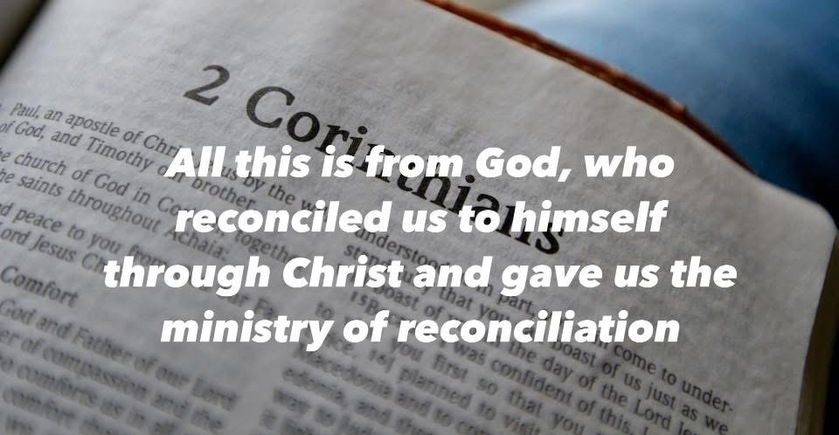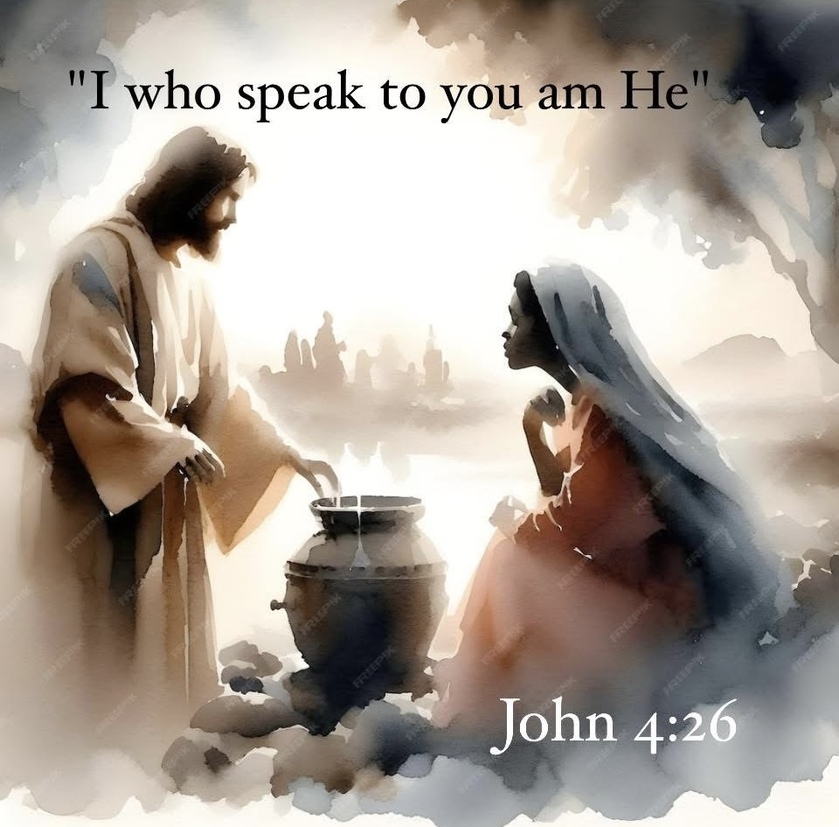The Gardener’s Grace: Turning Schismatic Seeds into a Global Bloom
Jeremiah 1:5
"I knew you before I formed you in your mother’s womb. Before you were born I set you apart and appointed you as my prophet to the nations."
Before Jeremiah’s first breath, God had already known him intimately, not just as a future prophet, but as a unique individual formed by divine hands. This sovereignty isn’t distant or impersonal; it’s woven with God’s omnipresence, His ability to be fully present in every moment, place, and even in the unseen realms of time before our birth.
The same God who spoke the stars into being (Psalm 33:6) was already at work in the hidden spaces of a mother’s womb, setting apart a life for His purposes. He isn’t confined by calendars or geography, He was there in Jeremiah’s formation.
Now let's move beyond the personal and into the corporate sphere. The history of the Christian church is a story of profound unity shattered by human frailty, yet held together by a sovereign omnipresent God who transcends our divisions.
Today, with over 45,000 denominations worldwide, the church appears fragmented, a far cry from Jesus’ prayer for unity in John 17:21. Yet, Jeremiah 1:5 invites us to view this schismatic history through the lens of God’s sovereignty and omnipresence. Just as God knew Jeremiah before his formation, setting him apart for a divine purpose, so too has He known the church, His body, from eternity past (Ephesians 1:4-5). Before the first council, creed, or split, God formed the church in His mind, appointing it as His witness to the nations. Schisms, while painful and often sinful reflections of human pride, do not thwart His sovereign plan. He rules over history, using even our brokenness to advance His kingdom. God’s omnipresence shines here as the unifying thread. He is not confined to one denomination or tradition; He is present everywhere, in every faithful gathering where two or three meet in His name (Matthew 18:20).
Being Omnipresent, He bridges what humans fracture, reminding us that the true church is invisible, spiritual, and eternal, not defined by walls or labels, but by those set apart in Christ (1 Peter 2:9). In a divided world, this sovereignty offers hope: no schism can erase God’s foreknowledge or derail His redemptive story.
I view church schisms through the lens of a divine garden. I see a picture of divine patience and redemptive creativity amid the church’s schismatic history.
I see God as the ultimate Gardener, tending, pruning, and expanding His creation with purposeful care. In the beginning, God’s garden, the church, was planted with exquisite intention. Just as Jeremiah 1:5 declares God’s foreknowledge and appointment ("Before you were born I set you apart" ), the early church was a unified Eden-like space, birthed at Pentecost (Acts 2) with diverse believers harmoniously growing under the Holy Spirit’s nurture. The apostles were like foundational plants, spreading roots of doctrine and fellowship.
Then weeds crept in: heresies, power struggles, and human sinfulness, much like the thorns and thistles that entered Eden after the Fall (Genesis 3:18). Even more heartbreakingly, the "seedlings" from God’s own planting, faithful believers and leaders, began to scatter wildly. Theological disputes (e.g., Arianism in the 4th century) or cultural pressures led to overgrowth, where one branch choked another. Schisms like the East-West divide or the Reformation weren’t mere accidents; they reflect the tension of free will in a fallen world, forcing the Gardener’s hand to intervene.
Yet, here’s the beauty of sovereignty: God isn’t surprised or defeated by these intrusions. His omnipresence means He’s intimately involved in every corner of the garden, from the hidden roots to the farthest flung seeds. Even in division, He prunes with precision.
The point is, God knows what He's doing. He knows about the caused of schism and he uses it for His purpose. The Lord removes or repurposed what hinders fruitfulness not out of anger, but to promote greater growth. those "unruly upstarts" aren’t discarded but relocated to new gardens, blanketing the earth in vibrant diversity. Historically, schisms have propelled the Gospel outward. The Eastern Orthodox Church preserved ancient liturgies and mysticism, thriving in regions untouched by Western influence. Protestant splits birthed movements like the Great Awakenings, spreading revival across continents. Even modern denominational "gardens", from charismatic Pentecostalism to contemplative monastic orders, cover the globe, fulfilling the Great Commission (Matthew 28:19) to reach all nations.
God’s sovereignty transforms our apparent chaos into multiplication; what humans see as fragmentation, He orchestrates as expansion. Omnipresent, He tends every plot simultaneously, ensuring no seedling is lost but appointed for its unique soil, just as He set Jeremiah apart before birth. This echoes the Parable of the Sower (Matthew 13:1-23), where seeds fall in varied places, some choked by weeds, others thriving in good ground. Schisms scatter seeds far and wide, and under God’s care, they root in unexpected ways, turning barren lands into flourishing gardens, (Revelation 7:9), a multitude from every nation.
Prayer:
Heavenly Gardener, You who designed the church with sovereign wisdom and remain omnipresent in its every branch, thank You for turning schisms into widespread beauty. Forgive our weed-like tendencies, prune us with grace, and transplant us where we can bloom for Your glory. Cover the earth with Your gardens, drawing all to unity in Christ. Amen.




















